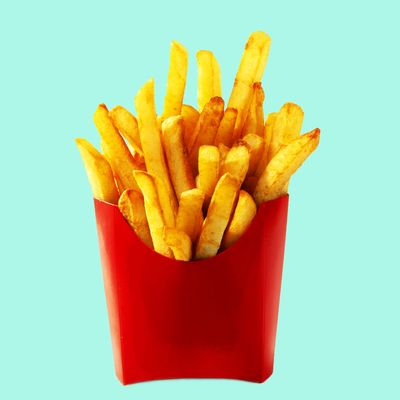
If you’re at all like me, you’ve eaten a lot of junk food late at night. One explanation for those late-night slices of pizza or burgers has to do with alcohol, which has a disinhibiting effect that makes us crave fat and salt. But an increasing body of research suggests that exhaustion, too, plays a role — that the “sleep munchies” are real, at least in cases when people didn’t get enough sleep the night before.
On Wednesday, for example, NPR’s the Salt noted a new study in the journal Sleep in which participants were put on normal sleep or sleep-restricted schedules while their calories were carefully monitored. Allison Aubrey reports:
The new study, based on blood samples, documents a novel finding: The daily rhythm of a particular endocannabinoid, known as 2-AG, is altered by a lack of sleep.
And these changes “could be driving intake for more palatable foods,” Erin Hanlon, a neuroscientist at the University of Chicago Medical Center, told us. …
“We found that sleep restriction boosts a signal that may increase the hedonic aspect of food intake,” says Hanlon. In other words, being sleep deprived may produce a stronger desire to eat.
To study how sleep influences appetite and eating, Hanlon and her colleagues recruited 14 healthy, young adults to take part in an experiment at the university’s sleep lab.
“These were all people who were … normal sleepers,” says Hanlon. They typically slept about eight hours a night.
The study was divided into two parts, each lasting four days. For one session, the participants were allowed to follow a normal sleep schedule, about 8 1/2 hours per night.
But during the other session, they agreed to a crazy schedule. They went to bed at 1 a.m. and were woken up at 5:30 a.m., so that they got a maximum of just 4.5 hours of sleep per night.
In both sessions, study participants were offered buffet-style meals and plenty of snacks, including candy and chips.
Sure enough, those in the sleep-restricted group “ate about 400 more calories from snacks,” likely because “their 2-AG levels peaked higher and stayed elevated longer” into the day than those in the normal-sleep group. Looking at the numbers in the study itself, there actually wasn’t a huge difference in how much the two groups ate during the buffet, but those who were sleep-restricted just kept on eating when they were offered snacks afterward, consuming way more energy than they needed.
We’re still a long way from understanding the connections between sleeplessness, stress, and, well, gluttony. But knowing that the “sleep munchies” are probably a real thing with an explainable physical cause can only help those of us trying to improve our droopy-eyed eating habits.




